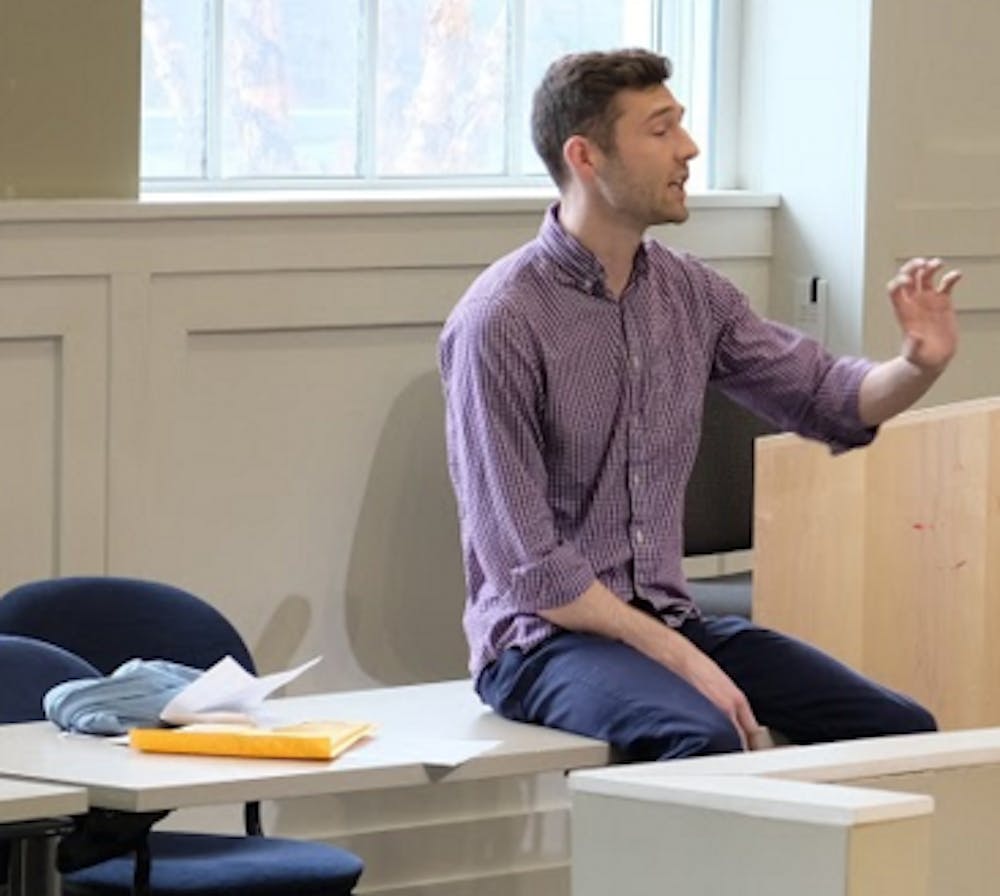By Erin Kamel
Staff Writer
The College invited alumnus Ethan Kisch (’14) to share his experience in the field of law and offer advice to prospective law school students in the Education Building Room 115 on Friday, March 30.
Kisch, who majored in political science at the College, went straight to Harvard Law School after graduating. He is in the process of completing a one-year clerkship for a federal judge in Newark, New Jersey.
Kisch interned for the state legislature during his undergraduate study, where he learned the value of internships and building professional connections with lawyers in different settings to gain perspective of what attorneys do on a daily basis.
“If all you’re doing is watching ‘Suits’ and ‘Scandal,’ you’ll have a much different view of what the vast majority of lawyers do,” Kisch said.

Kisch suggested that students connect with College alumni on LinkedIn to see what law schools they’ve gone to and where their careers have taken them.
One of Kisch’s key pieces of advice was to take a course in logic. He described the course as essential for law school and life in general.
“It kind of hardwires your brain in a way to help you realize argumentative structures, where there are holes in arguments and how to write more clearly,” Kisch said.
Kisch suggested that when applying to prospective schools, students do their research and consider the debt involved, the learning environment of the school and what internship opportunities and career prospects the school offers.
While in law school, Kisch interned at a federal prosecutor’s office in Brooklyn, New York where he worked on cases involving organized crime.
He also interned for the attorney general’s civil rights division in Massachusetts, where he worked on cases regarding marriage equality for the LGBTQ+ community. Kisch then completed Harvard’s prison legal assistance project in which students represent Massachusetts inmates, who are accused of violating prison regulations, at disciplinary hearings.
Kisch also advised taking a wide variety of undergraduate classes such as anthropology, finance or computer science in order to diversify students’ educational background.
Kisch recommended students spend one to two years working or volunteering with organizations such as Teach for America or the Peace Corps to gain practical life experience after they complete their undergraduate degree and before they enter law school.
“I went straight through (to Harvard Law School) and I felt very young there,” Kisch said. “Everyone next to me had vast work experience.”
He advised students to take many practice tests and consult online resources to prepare for the Law School Administration Test. Kisch, who dedicated an entire summer to studying for the LSAT and completed a course to prepare for the test, said to “stick it out until you feel like you’re ready to take the exam.”
Today, some law schools accept the Graduate Record Examination, so Kisch recommended taking a practice GRE in addition to the LSAT in order to see which type of exam students have a knack for.
Kisch revealed how law school classes are both similar to and different from classes at the College. He described law school as more rigorous, with heavier reading assignments and less feedback from professors throughout the semester.
Kisch shared his experience with the Socratic method of teaching used in law school, in which discussions are presented in the form of cooperative debates and students are “cold called” in order to guarantee that they’re prepared to participate in class. He assured students that the College adequately prepares students for more rigorous study.
Kisch emphasized the importance of remaining resilient throughout the education process.
“The biggest thing I’ve taken away from this whole process is if you want to go to law school, you’ve got to go all in,” Kisch said.







